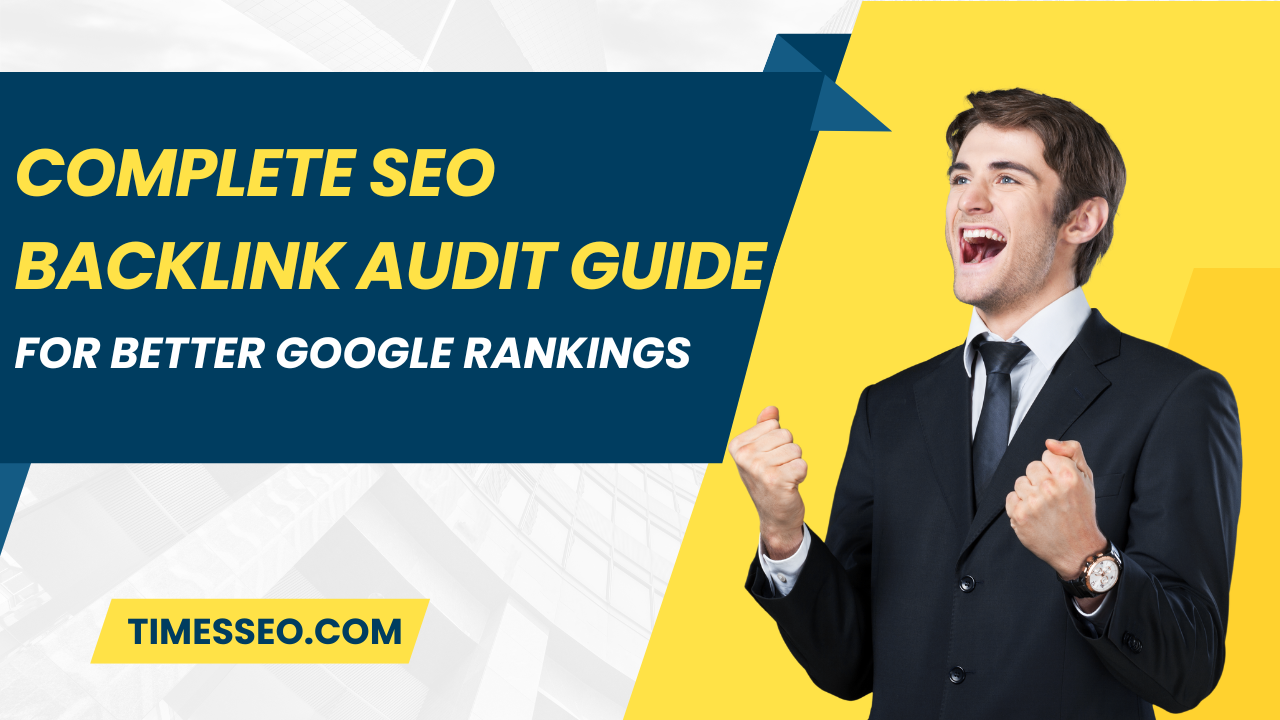
SEO Strategies for Fitness Challenges and Online Programs
Learn the essential steps to perform a complete website audit with our in-depth guide, specifically tailored to the real estate industry. This blog post covers everything from on-page SEO and technical fixes to local SEO optimization and competitor analysis—making it the ultimate resource for improving SEO for real estate agents and boosting online visibility.
Table of Contents
Introduction
If you’re a real estate agent with a website, your digital presence can make or break your business. But here’s the thing—just having a website isn’t enough. You need a search engine optimized website. That’s where a good old-fashioned SEO website audit steps in.
Think of it as a health checkup for your real estate website. You find what’s working, what’s holding you back, and how to fix it. Let’s dive in.
What Is a Website SEO Audit?
An SEO audit is a comprehensive review of your website to assess how well it performs in search engine rankings. For real estate agents, it’s about understanding how visible you are to local home buyers and sellers who are typing “best realtor near me” or “homes for sale in [city]” into Google.
It’s the first step to improving your rankings, attracting more leads, and closing more deals.
Key SEO Audit Tools You’ll Need
Before you begin, prepare yourself with these useful resources:
- Google Search Console – Monitor how Google views your site.
- Google Analytics – Track user behavior and traffic sources.
- Screaming Frog – Crawl your site like a search engine.
- Use Ahrefs or SEMrush for in-depth keyword and backlink analysis.
- Utilize Google PageSpeed Insights to analyze your website’s performance and assess its Core Web Vitals.
Step-by-Step Website SEO Audit Process
1. Check Website Visibility on Search Engines
Start with the basics—can people even find you?
- Google your name or business: Do you show up?
- Use site:yourwebsite.com in Google to check indexed pages.
- Check Google Search Console for indexing problems.
2. Audit On-Page SEO Elements
The main purpose of on-page SEO is to optimize your website’s content to improve its visibility in search engine results.
Title Tags and Meta Descriptions
Are they unique and include keywords like “real estate” or your city?
Header Tags (H1-H6)
Each webpage should have a single H1 tag that clearly defines the core topic of the content.
Keyword Usage and Placement
Are you using relevant terms like “homes in [location]” or “buy house near [neighborhood]”?
Image ALT Text
Describe each image. Don’t just leave them as “IMG_12345.jpg”.
3. Analyze Site Structure and Navigation
A clear route from the homepage to the listings is what you want.
- Fix broken links.
- Make sure your navigation is intuitive.
- Ensure your sitemap and robots.txt are updated and submitted.
4. Check Mobile-Friendliness
Over 60% of real estate searches happen on mobile.
- Use Google’s Mobile-Friendly Test.
- Fix font sizes, clickable elements, and layout issues.
5. Evaluate Page Speed and Performance
Speed matters—a lot.
- Use Google PageSpeed Insights or GTmetrix.
- Optimize images, reduce server response times, and eliminate unnecessary scripts.
6. Analyze Backlink Profile
Google loves backlinks—especially high-quality ones.
- Use Ahrefs or SEMrush to check your inbound links.
- Disavow spammy links and aim for links from real estate blogs or local news.
7. Content Audit for Real Estate Websites
Your content should answer user intent.
- Are your blog posts helpful or just keyword-stuffed?
- Are your property descriptions unique?
- Add pages for each city or neighborhood you serve.
8. Technical SEO Elements
Here’s where the tech magic happens.
- Implement canonical tags to avoid duplicate content.
- Ensure all pages are secure with HTTPS.
- Add schema markup for listings (price, location, availability, etc.).
9. Local SEO Audit
This is crucial for real estate agents.
- Optimize your Google Business Profile.
- Make sure your business name, address, and phone number (NAP) are uniformly listed in every online directory.
- Build citations on platforms like Yelp, Realtor.com, and Zillow.
10. Competitor Analysis
Spying on the competition is smart.
- What keywords are they ranking for?
- What backlinks do they have that you don’t?
- Use tools like SEMrush for side-by-side comparisons.
Common SEO Issues for Real Estate Sites
- Duplicate content from MLS feeds.
- Thin content on property pages.
- Slow-loading images due to high-res property photos.
How to Fix and Monitor Issues
Register Procedure
Set up alerts in Google Search Console.
Fix broken pages and update outdated content regularly.
Use tools like RankMath or Yoast SEO for guidance.
Real-Life SEO Audit Example for Realtors
Let’s say you’re based in Austin, TX. You do a quick audit and find:
- Your homepage isn’t optimized for “Austin real estate agent”.
- Your blog hasn’t been updated in months.
- Your site takes 5 seconds to load on mobile.
You fix these, and boom—rankings and traffic start improving in just weeks.
Tips to Maintain Ongoing SEO Health
- Check Search Console monthly.
- Post new blog content twice a month.
- Keep an eye on mobile usability reports.
- Regularly update Google Business Profile.
Conclusion
An SEO audit isn’t just a task—it’s a strategy. For real estate agents looking to dominate local search, it’s your secret weapon. From keywords and backlinks to mobile speed and structured data, auditing your site can lead to more traffic, more leads, and ultimately, more sales.
Frequently Asked Questions
At least once every 6 months, but quarterly is ideal if your market is competitive.
Yes! Many tools like Yoast and Google Search Console make it beginner-friendly.
For real estate agents, local SEO and mobile usability are game-changers.
Typically, 2-3 months for measurable traffic and ranking improvements.
Not necessarily. You can start yourself and bring in experts for advanced help.
Table of Contents
Popular Posts
-
 Affordable Technical SEO Audit for Small Business: A Complete Guide26 Jun 2025 Blog
Affordable Technical SEO Audit for Small Business: A Complete Guide26 Jun 2025 Blog -
 How to Get an Affordable Technical SEO Audit for Small Business27 Jun 2025 Blog
How to Get an Affordable Technical SEO Audit for Small Business27 Jun 2025 Blog -
 The Ultimate Local SEO Audit Checklist for Startups28 Jun 2025 Blog
The Ultimate Local SEO Audit Checklist for Startups28 Jun 2025 Blog -
 Local SEO Audit Checklist for Startups: A Beginner’s Guide28 Jun 2025 Blog
Local SEO Audit Checklist for Startups: A Beginner’s Guide28 Jun 2025 Blog -
 Top On-Page SEO Audit Steps for Service Websites Every Business Should Know29 Jun 2025 Blog
Top On-Page SEO Audit Steps for Service Websites Every Business Should Know29 Jun 2025 Blog -
 Technical SEO for WordPress: The Ultimate Beginner’s Guide01 Jul 2025 Blog
Technical SEO for WordPress: The Ultimate Beginner’s Guide01 Jul 2025 Blog -
 The Impact of On-Page SEO Audit Steps for Service Websites on UX01 Jul 2025 Blog
The Impact of On-Page SEO Audit Steps for Service Websites on UX01 Jul 2025 Blog -
 Technical Mobile SEO Audit Tips for Developers02 Jul 2025 Blog
Technical Mobile SEO Audit Tips for Developers02 Jul 2025 Blog -
 Complete SEO Backlink Audit Guide for Better Google Rankings03 Jul 2025 Blog
Complete SEO Backlink Audit Guide for Better Google Rankings03 Jul 2025 Blog -
 Boost Your Rankings with Technical SEO for WordPress01 Jul 2025 Blog
Boost Your Rankings with Technical SEO for WordPress01 Jul 2025 Blog






